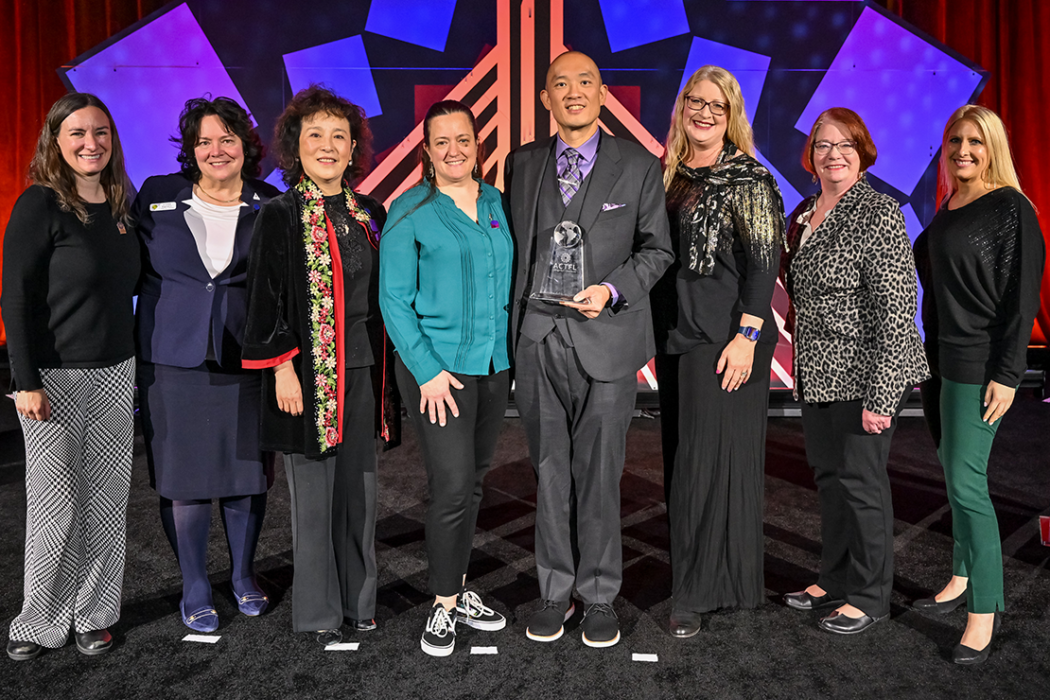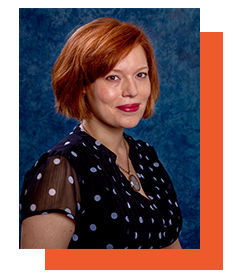Brenna Byrd

2018 Hall of Fame Nominee

University of Kentucky
Lexington, KY
2018 Finalist from SCOLT
German
The one constant in my teaching style is innovation. My colleagues actually tease me that my life would be much easier if I would only be content to teach something the same way twice. No matter how well a course goes, I am always seeking new ways to improve it, based on student input and pedagogical research. For this reason, I consider professional engagement not only a service, but a learning opportunity as well. I apply for numerous workshops and grants that will expand my knowledge of language teaching and pedagogy in general, and I enjoy attending as many conferences on a wide variety of language-related topics.
I was lucky to be chose to attend an AATG-sponsored three-day seminar at Georgetown University in Washington, DC in 2014. This seminar, Meeting Student Needs in College German Programs, changed the way I thought of our program articulation as well as how to advocate for language learning from inside the classroom. We specifically learned about the history of a literacy-based approach to teaching language through the lens of genre, and how we can use the promise of increasing student literacy overall (in their native language as well) as a marketing strategy for maintaining a language requirement at the college level. I now see that the best way to advocate for the relevance of language instruction is to include learning goals that mirror the undergraduate curriculum requirements and the desires of future employers. Global literacy, communication and presentational skills, intercultural competence, and the ability to design and complete projects that showcase these abilities are key components of our new curriculum expectations for the language classes. Whereas they may have been implied before, these goals are now explicitly stated and included in our syllabi as well as in discussions with administration on the efficacy of language instruction as a part of an undergraduate education.Every year I attend our Kentucky World Language Association conference and I usually present at least once every year. This past fall, I organized and then led a three-hour workshop at the Kentucky World Language Association conference with presentations from four of my colleagues from MCLLC. Our five presentations, each from a different language classroom, showed how each individual used authentic materials from the target culture to guide the curriculum to include intercultural competence goals in our language classes. In the second part, I led participants through an exercise in which we examined how social media, such as Instagram, could be used even at an introductory language level to inspire cultural comparisons that allow for a more multifaceted presentation of culture than any textbook could offer. For example, by searching through hashtags of vocabulary items, such as the month of October (#october), we were able to examine the visual associations the posters had with that month, and discuss how these associations might be specific to the country, the region, the gender, etc. of the poster. I specifically make sure to put together talks or workshops for the KWLA conference that communicate in an accessible format the information I have received through workshops or research, especially those funded by AATG. I make a point to present at least once, if not twice, per KWLA conference. I am trying to establish more of a personal connection with the local K-12 instructors and make a point to come to local events, such as the Professional Development Seminar on Authentic Resources, presented by die Zentrallstelle für das Auslandsschulwesen (ZfA) in April 2016. I was one of two university faculty members at this workshop, and the only one from the University of Kentucky, and I could tell immediately that the other instructors appreciated our presence at the meeting. I try to stay as involved as possible with the AATG and coordinate events with them as much as possible. I not only participate and organize the graduate student participation for the German part of events held at UK such as the MCLLC Open House and the KWLA World Language Day Festival, I specifically contact local German instructors ahead of time to listen to what they would prefer and to see how we can work together.
My work with the video game Far Cry: Primal has been a unique source for advocacy and public relations. The talks we have given have generated a significant amount of interest in languages and linguistics for local students especially. Many students from high school and universities have attended our talks and come up to us to thank us for making the study of languages seem practical, as our work has inadvertently convinced parents in small-town Kentucky of the usefulness of languages in the new job market.